7 Common Types of Fuel for Cars
Until we are all driving 100% electric vehicles, the need for car fuel will always be in great demand. However, some of the primary differences between various engines include the type of fuel they use and how the ignition takes place.
We all know of gasoline and diesel but did you know there are other types of fuels that power modern car engines? Who knows, one of the lesser known fuels now may become the main vehicle fuel type in the future.
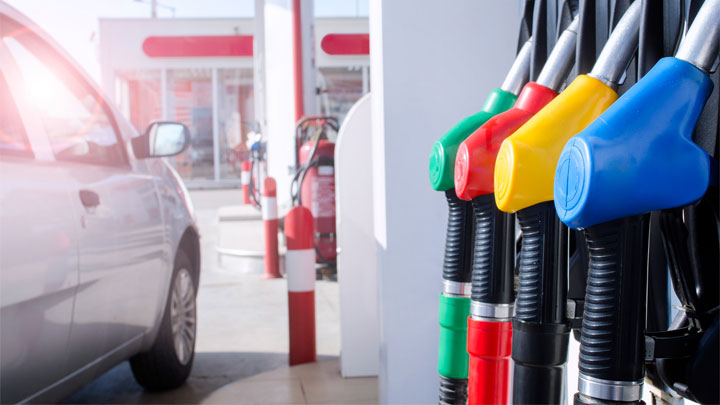
Related: What is Flex Fuel?
Fuel Types for Vehicles
#1 – Gasoline
The most common type of automobile fuel in the United States is unleaded gasoline by a wide margin. Regular unleaded is often the cheapest type of fuel and it serves the basic power needs of most internal combustion engines.
Gasoline with higher octane ratings (unleaded plus, super unleaded, premium, etc.) have their advantages and are required for some vehicles, but come at a higher price. Higher octane typically means a slightly higher freezing point (in case that’s interesting).
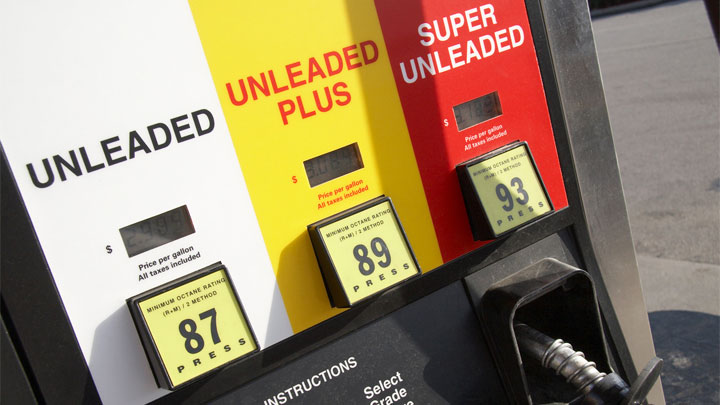
However, gasoline is a fossil fuel which produces carbon emissions that go into the atmosphere. This results in the growing air pollution problem we have in the world and some say contributes to global warming.
The fact is, all types of fuels have some kind of environmental impact. Even electric vehicles aren’t as “clean” as some make it seem so regular old gasoline will likely be around for quite some time.
See Also: What Happens If You Put Gasoline in a Diesel Engine?
#2 – Diesel
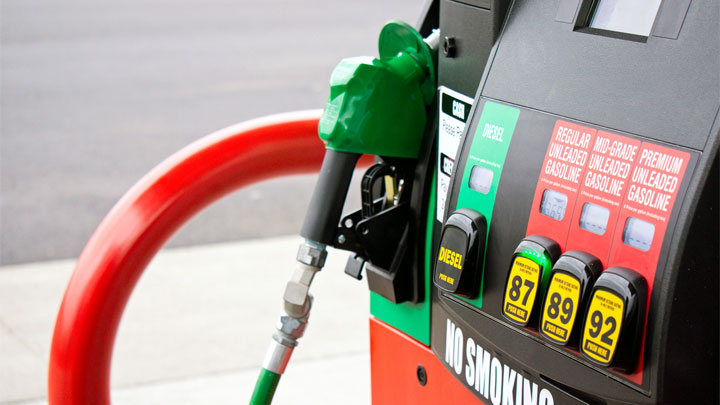
Diesel fuel is most often used for larger vehicles, such as trucks, trains, buses, and tractor trailers. It is actually a fossil fuel just like gasoline is. The amount of carbon dioxide that it produces is less than gasoline. However, diesel produces more nitrous oxide and organic compounds that create smog.
The upside to diesel is its fuel efficiency. Plus, diesel engines tend to last longer than gasoline engines.
Read Also: Diesel vs Gasoline Engines
#3 – Biodiesel
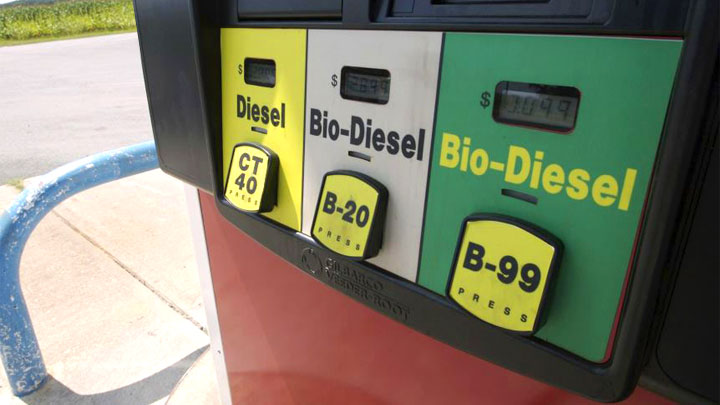
Biodiesel is an environmentally friendly version of regular diesel fuel. Instead of being traditional fossil fuel, biodiesel is comprised of organic compounds like lipids and fatty acids.
For instance, vegetable oil is a popular ingredient of biodiesel. Other possible ingredients can include animal fat, palm oil, rapeseed and soybean oil. Biodiesel does not produce very much carbon emissions.
#4 – Ethanol
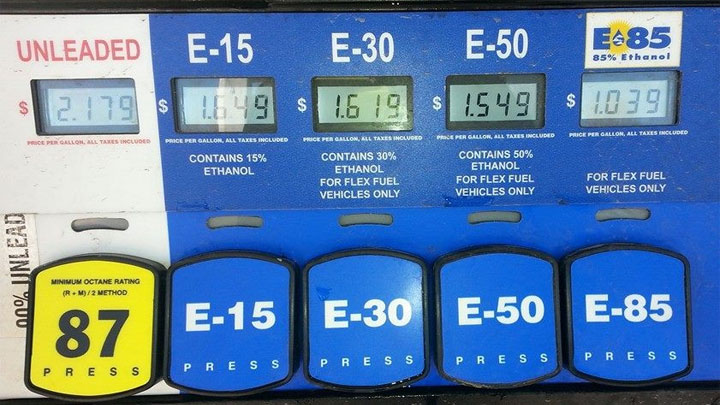
Ethanol is another environmentally friendly way to reduce carbon emissions. This is a bio-fuel which comes from natural products like barley, sugar cane, and corn.
The great thing about ethanol is that it can be used in normal gasoline engines. While ethanol is normally an additive for gasoline (98% of gasoline sold in the US has some percentage of ethanol), there are some new car models out now that can run entirely on ethanol.
See Also: DTC P0178 (Flex Fuel Sensor Issue)
#5 – Compressed Natural Gas
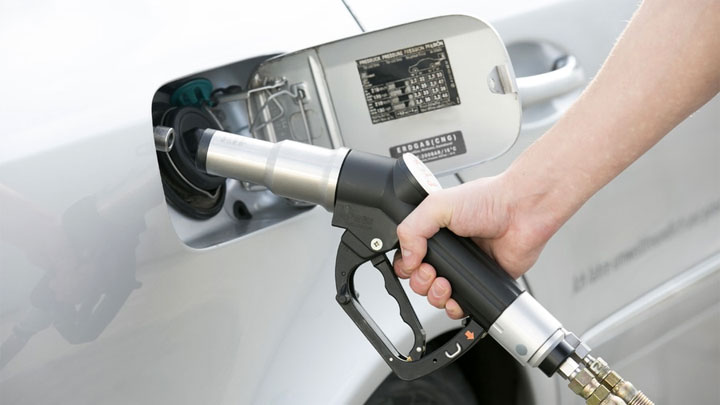
Compressed natural gas (CNG) can power internal combustion engines that are manufactured to run on this type of fuel. The great thing about compressed natural gas is that it is clear and does not produce an odor. It is supposedly 80% less harmful to the ozone layer too.
Unfortunately, natural gas powered vehicles are a rarity in the United States. A large percentage of them reside in California. Good luck finding a gas station in other parts of the country where compressed natural gas is offered for refueling.
#6 – Liquified Petroleum Gas
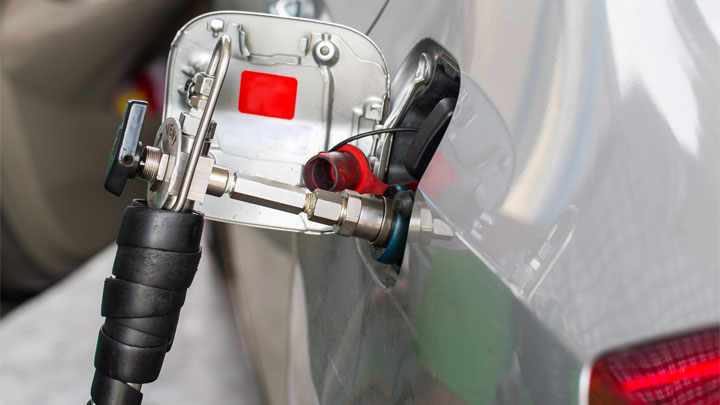
More commonly known as liquid propane, liquified petroleum gas (LPG) is one of the cleanest forms of fuel. While not very common in America outside of forklifts, buses, trucks, and taxis, many other countries have vehicles designed specifically to run on LPG.
It used to be quite popular in the UK and Australia in the early 2000s but demand has dropped off considerably as oil prices lowered substantially.
Its biggest drawback is that a gallon of LPG contains almost 30% less energy than a gallon of gasoline so you won’t be able to travel as far. Cost is also a big factor as a vehicle often has to be converted to use propane.
#7 – Hydrogen
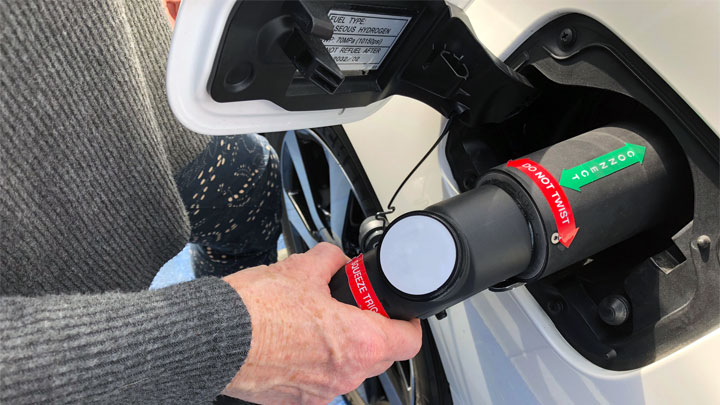
Hydrogen fuel is a newer type of clean, renewable energy. It’s a fuel that when used in a fuel cell, produces only water and emits no harmful pollution.
Hydrogen powered vehicles are essentially electric vehicles but instead of having to plug them in to charge, you refuel with hydrogen which reacts electrochemically to produce electricity. While not very common today, many say there’s a bright future for hydrogen fuel cell vehicles.
- Replace the Engine or Replace the Car? (11 Factors to Consider) - Apr 11, 2024
- Plastic Piece Dragging Under Your Car? (What It Is and What To Do) - Mar 21, 2024
- Timing Belt vs Timing Chain (What’s the Difference?) - Feb 27, 2024
